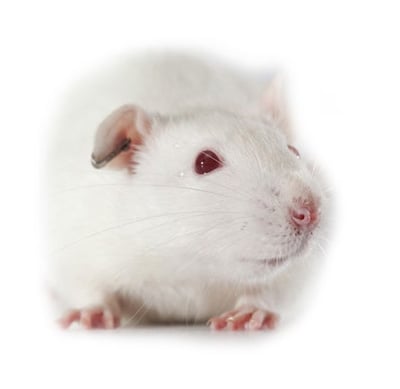p53 knockout rats
HsdSage:SD-Tp53em1Sage

Strain
Location
Order Today
Typically heterozygous rats are cryo-recovered in 10-12 weeks to an age of 7 weeks old. Subsequently homozygous rats to an age of 7 weeks old can be produced within 20-22 weeks.
- Monoallelic 11 base pair deletion in Tp53
- Broad tumor spectrum
- High degree of tumor malignancy
- Background Strain: Sprague-Dawley
Availability: Cryopreserved as heterozygous embryos
Zygosity: Heterozygous as live colony
Homozygous null Tp53 rats display onset of tumors at ~4 months of age. A high degree of malignancy is observed across a broad spectrum of tumors. Heterozygous rats have a delayed onset of spontaneous tumors, making them valuable for carcinogenicity screening, as well as studying efficacy of chemopreventive and therapeutic treatment.
p53 is a tumor suppressor protein encoded by the Tp53 gene. Its role in cell cycle regulation and stabilization for preventing genome mutation is observable among a wide variety of multicellular organisms, including humans, rodents, frogs and fish. Heterozygous rats deficient in p53 protein are prone to spontaneous tumors, making them valuable for in vivo screening of carcinogenicity, as well as studying chemopreventive and therapeutic treatment.
Origin:
The p53 Knockout Rat model was originally created at SAGE Labs, Inc. in St. Louis, MO and distributed out of the Boyertown, PA facility. The line continues to be maintained through the original SAGE Labs animal inventory acquired by Envigo, then Envigo was acquired by Inotiv in 2021.

Available regions:
For pricing information, please contact us using the phone number above.

Research use and related publications
- Autoimmune disease
- Cancer
- Hematopoiesis
- Infectious disease
- Oncology
- Vaccine development
- Xenografts





